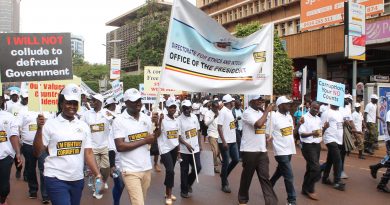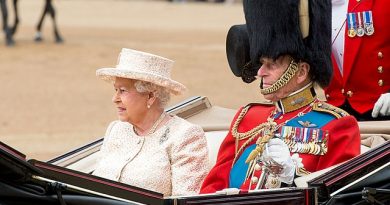Burkina Faso Cabinet Detained by Presidential Guard
By Oumarou Kouraogo
Staff Writer
In Burkina Faso, the end of 2014 was marked by protests against constitutional change that would allow President Blaise Compaore to run for another term, extending his 27-year presidency. Pressure from citizens constrained Compaore to dissolve the government, declare a state of emergency, and flee to the Ivory Coast.
A transitional government was formed, with Michel Kafando as interim president and Lieutenant Colonel Yacouba Isaac Zida as prime minister. The interim government was applauded for its civism and the conditions for transparent elections that were put in place.
On April 7, members of the interim Congress voted on a new electoral code that disqualified constitutional change supporters from the upcoming elections. In reality, this law makes all government officials who identify with the party of former President Compaore, Congress for Democracy and Progress (CDP), ineligible to run.
CDP leaders contested this legislation for its discriminatory nature. The Supreme Court of Burkina Faso found the new electoral code constitutional, making several candidates ineligible to run in the elections.
However, the Court invited the concerned political parties to select new candidates to replace those who were banned. The Court did not interpret the new electoral code as exclusionary toward entire political parties, but only those who explicitly supported the initiative to change the constitution.
BBC reports that on September 16, on the orders of Gilbert Diendere, Compaore’s right hand man and head of the elite presidential guard, a great number of soldiers came into the cabinet room and kidnapped the interim president and prime minister. According to the Guardian, a televised announcement by Lieutenant Colonel Mamadou Bamba on September 17 stated that the coup comes in protest of “the electoral code, which blocked members of Compaore’s party from taking part in the October 11 elections.”
The New York Times poses that the coup was motivated by the threat of disbanding the Regiment of Presidential Security in response to negative public opinion.
The coup did not succeed, as the population, along with several civil society and political leaders, opposed it. United Nations Secretary-General Ban Ki-moon and other heads of state condemned the event, saying, “A power seizure by the presidential guard is a major step backward for a country that so recently managed to peacefully oust an autocrat,” the Wall Street Journal reports.
The risk of civil war loomed when army chief General Pingrenoma Zagre directed his troops to the capital, Ouagadougou, where the coup was staged. The army gave the coup leader an ultimatum to step down or be removed by force. An agreement was reached and Diendere stepped down.
On September 23, Kafando and Zida were reinstated into power under the supervision of several West African heads of state.
The post-coup agreement still bans CDP members in the upcoming election. Al Jazeera reports that the Regiment of Presidential Security will be dismantled, and those responsible for the coup will be put on trial for killing ten people and injuring over a hundred others.


